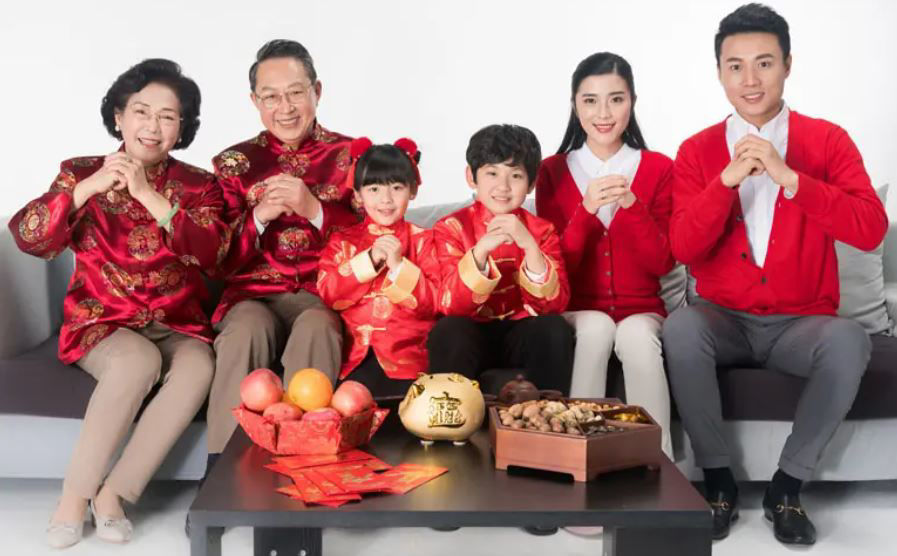3 mins read//
You may wonder how long does Chinese New Year last? Chinese New Year (Lunar New Year) is celebrated for sixteen days (from Chinese New Year's Eve to Chinese Lantern Festival). The preparations start half a month before Chinese New Year's Eve. Many celebration activities for this period are traditional customs, but some are quite new...
Chinese New Year 2022 falls on Tuesday, February 1st, 2022. Here is a daily guide to tell you how Chinese people celebrate Chinese New Year in 2022.
See more on the pre-CNY day by day guide here.
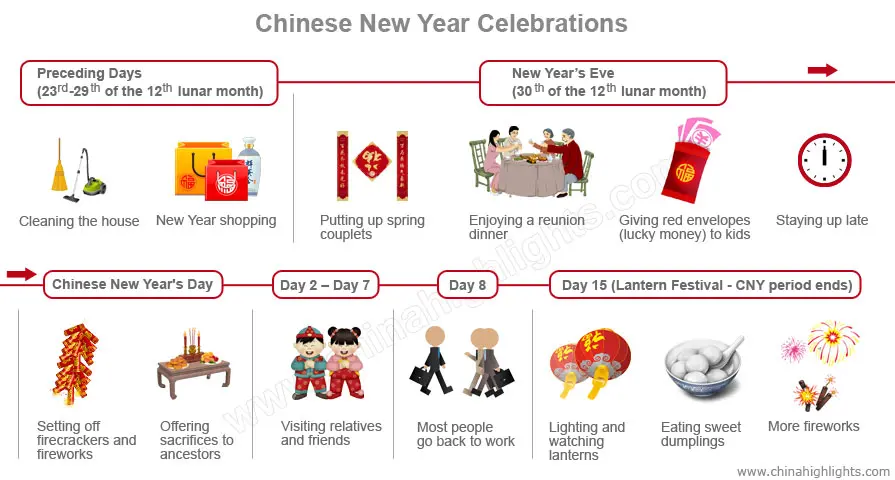
Chinese New Year's Day (Feb. 1, 2022)
Chinese people believe that what they do on the first day of the lunar year will affect their luck during that year.
1. Setting Off Firecrackers and Fireworks
The moment Lunar New Year arrives there is a cacophony of fireworks and firecrackers all around, even in rural China. Families stay up for this joyful moment.
In many rural areas, it's customary to set off firecrackers before dinner, each day from New Year's Eve to day 3 of CNY.
It's believed that the louder the firecrackers, the better and luckier it will be for business and farming in the coming year.
Kids, with (mini) firecrackers in one hand and a lighter in another, cheerfully celebrate by throwing the small explosives one-by-one on the street whilst plugging their ears.
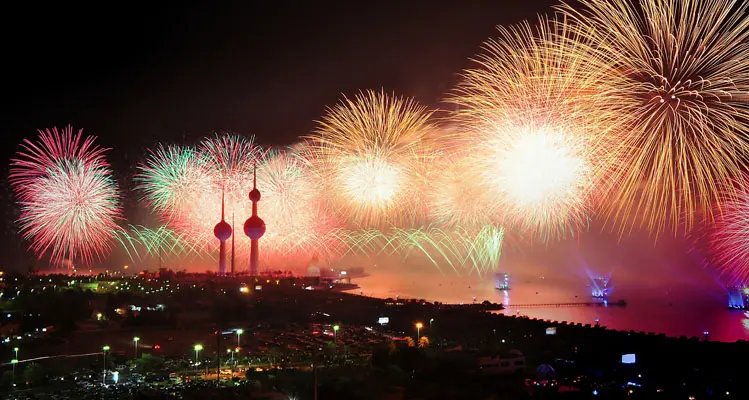
2. Putting on New Clothes and Extending New Year Greetings
On the first day of Lunar New Year, Chinese people put on new clothes, and say "gongxi" (恭喜/gong-sshee/literally ‘respectful joy’, meaning 'greetings' or 'best wishes'), wishing each other good luck and happiness in the New Year.
It is customary for the younger generation to visit their elders, and wish them health and longevity.
In recent years, a new way to do New Year greetings has appeared, especially among the young. People who are too busy to visit their friends or relatives send a New Year's card, a WeChat red envelope, or a text message instead.

3. Watching Lion and Dragon Dances
Lion dances and dragon dances are also seen on Lunar New Year's Day. Once very popular in China, they are reappearing in many places.
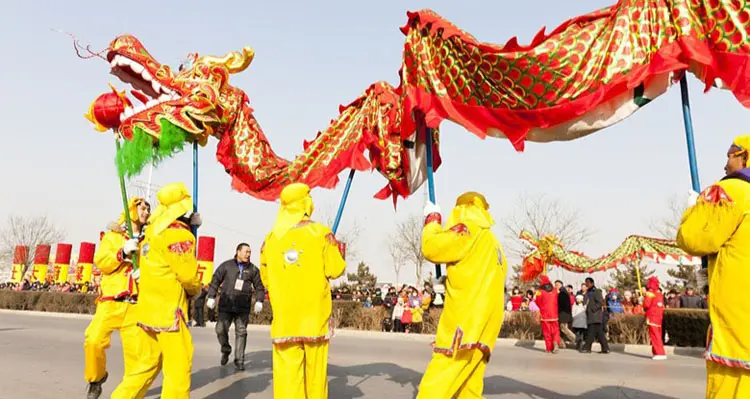
4. Public Celebrations at Parks and Temple Fairs
Such activities are held in parks from the first day of the lunar year to the last (when celebrating the Lantern Festival).
Generally, parks and temples are the best places to go for festive celebrations at the Chinese New Year.
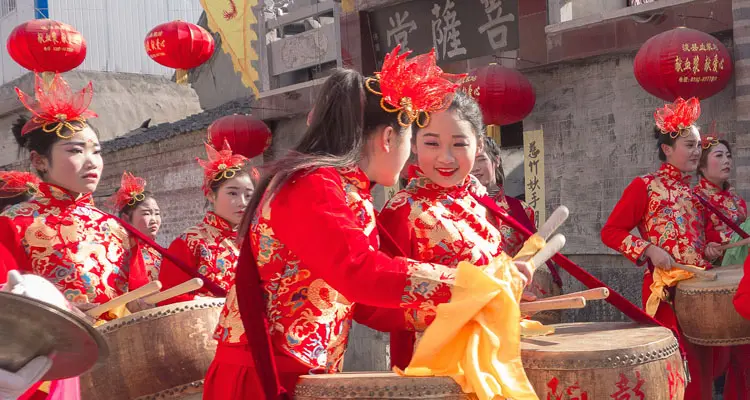
5. Visit The Family Member
On the first day, the oldest and most senior members will be visited, the visits serve to strengthen family ties. Bài nián refers to both, pay a New Year's call as well as 'wishing somebody a Happy New Year'.

There is also the tradition of welcoming guests with tea and sweet treats, such as sugared fruits which are supposed to sweeten one’s upcoming year. Sweets and fruits are served on a round or octagonal tray - the form resembling togetherness and hence the tray is most commonly translated as the "Tray of Togetherness".
Most likely the amount of sweets will be arranged in eight units, as the number eight symbolises luck. At times, an arrangement of nine units can be found, the number represents wealth, good fortune and family unity (note that for the Chinese the number '8' is a lucky one and for the Thai- Chinese it is as well the number '9').
The visitor will bring a small gift to the household which will be visited- usually oranges, tangerines, mandarins or such alike, as the fruit symbolises gold, hence wealth and good fortune.
6. Day On Vege
A traditional Buddhist vegetarian dish called "Jai" (Traditional Chinese: 羅漢齋 or 齋; pinyin: luóhàn zhāi) or Buddha's delight is prepared on the first day of Chinese New Year using eighteen different ingredients as the Chinese believe eighteen to be a lucky number signifying wealth and prosperity (Traditional Chinese: 羅漢全齋; pinyin: luóhàn quánzhā). Of course, each single one of the ingredient represents a certain symbolic meaning.

Abstaining from meat consumption on the first day is believed to enhance longevity. Additionally, a vegetarian dish helps to purify and cleanse out the body as well as it honors a Buddhist tradition that nothing living should be killed on the first day of the New Year.









